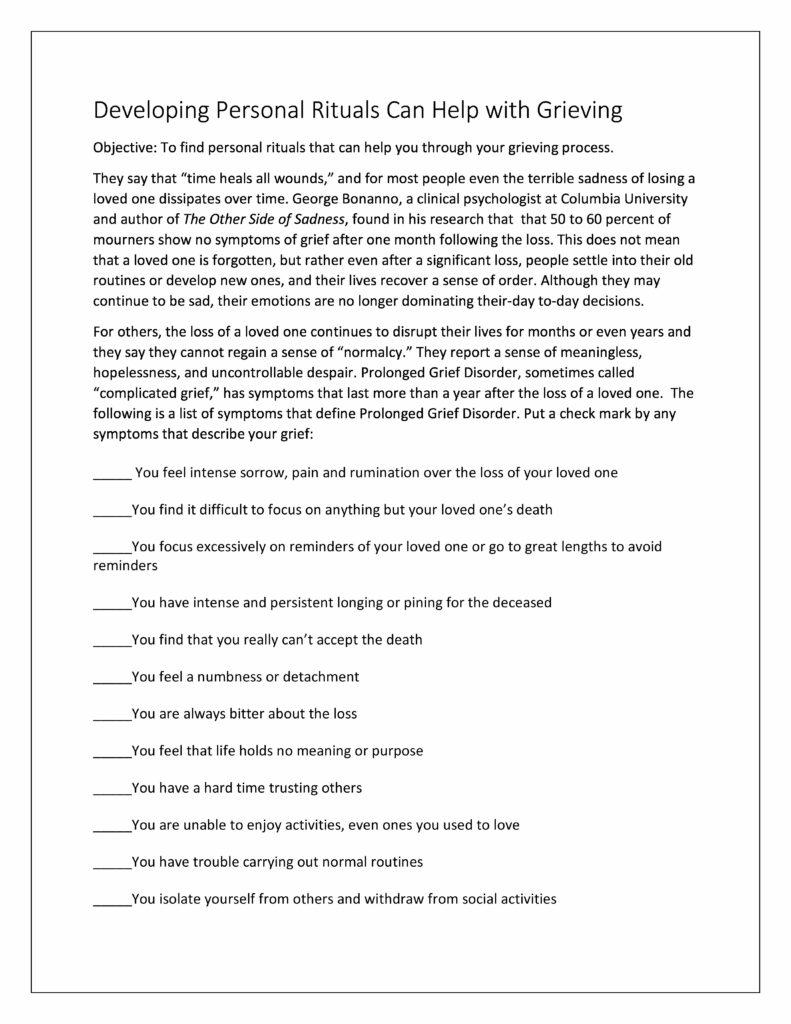Studies tell us that when professionals prescribe therapeutic homework, clients report significantly better outcomes. Our worksheets are derived from evidence-based therapies, and they are designed by experienced professionals. Use the navigation links on the left of this page to view tools in a specific category. Or use the search box at the top of this page to find the exact tool you are looking for.
To modify the tools, click the ‘Send to Client’ button by each tool to open the Psychology Forms Filler. You can then edit the tool as you see fit and either print it out or send it to a client to be filled out online. Click here for a tutorial on using the Psychology Forms Filler.
If you can’t find what you are looking for on this site, please let us know by
clicking here and our team of writers, graphic artists, and therapists will custom-design it for you.
This worksheet is designed to help people who eat excessively gain more control over their eating habits. (eating disorder, binge eating, overweight, weight loss, 0918)
This fact sheet from the Substance Abuse and Mental Health Service Administration (SAMHSA) gives tips to survivors about how to cope, how to plan for the future, and how to recognize signs that they or their loved ones might need help. (trauma, natural disaster, PTSD, 0918)
This worksheet is designed to help people understand that the laws of probability, not their anxiety, will influence how people behave. The worksheet asks the user to identify one current worry and look at nine possible outcomes, some good and some bad, and then determine the probability for each outcome. (GAD, 0918)
This worksheet is designed to help people overcome their anxiety by practicing mindfulness, paying attention to their world through all five senses. (GAD, 0818, intrusive thoughts)
This worksheet asks people to choose from a list of topics and keep a journal of positive thoughts for two weeks. They are then asked to think about whether this activity helps them reduce their stress and/or anxiety. (GAD, anxiety, worry, 0818)
This recording form helps people keep track of their sleep patterns for two weeks as well as the activities that might have influenced their sleep. Developed by the American Academy of Sleep Medicine. (0818)
This worksheet is designed to help people take specific steps to get rid of objects and avoid people and situations that might trigger an addiction. (alcohol abuse, drug abuse, 0818)
Recognizing the importance of our unconscious wishes and needs, this worksheet asks people to concentrate on how things will be in the future where their problems have less influence or may be absent altogether. Concentrating on the positive aspects of your life, rather than on your problems, directs your unconscious to make decisions that will be more productive and beneficial. The concept of a “self-fulfilling prophecy” is a very real psychological phenomenon. You can make your future better or worse – why not make it better? (positive psychology, solution-oriented therapy, depression, 0718)
This worksheet is designed to help people accept their worries and other distressing thoughts. It may seem counter-intuitive, but therapists advise their clients not to try and stop their worrying or other intrusive thoughts, but rather to accept them while emotionally detaching from their content. This worksheet teaches people how to use visual metaphors to accomplish this. Four visual metaphors include: Don’t Struggle in Quicksand, Ignore Annoying Passengers in Your Car, Watching the Worry Train, and Clouds Floating By. (GAD, intrusive thoughts, anxiety, 0818)
This worksheet is designed to help you think about personal rituals which can help you through your grieving process. You might choose to do a ritual every day, or you might only perform rituals on the anniversary of your loss. That is entirely up to you. Use the second worksheet to help you determine if rituals are helping you through your grieving process. (grief, loss, grieving, 0718)










